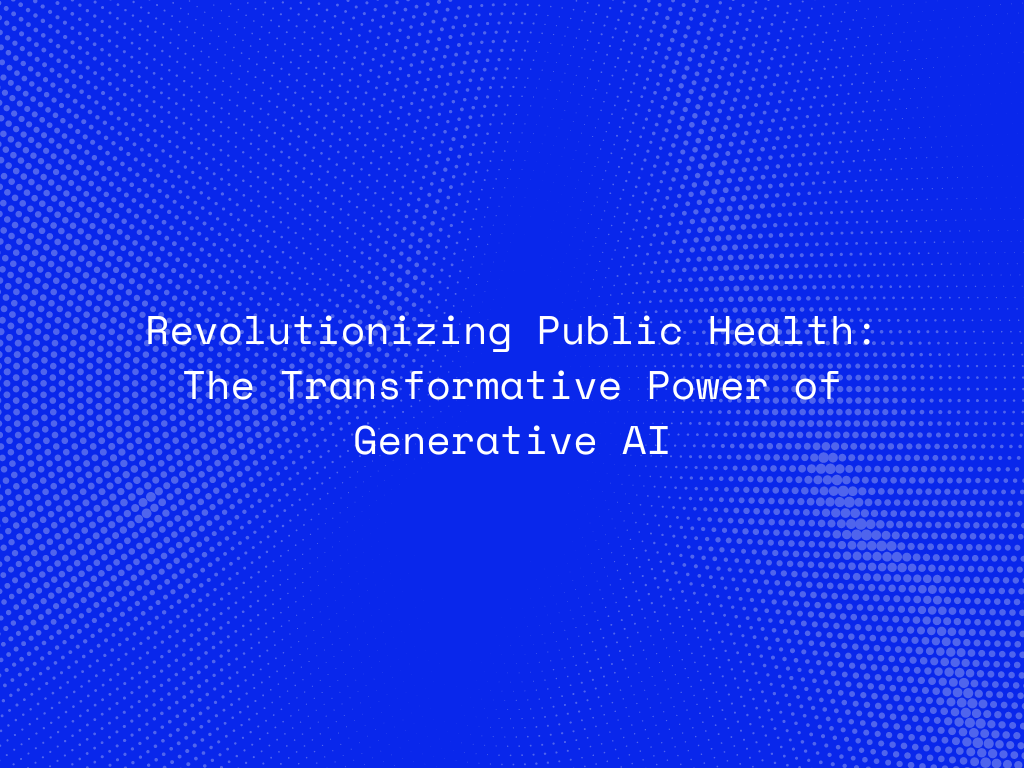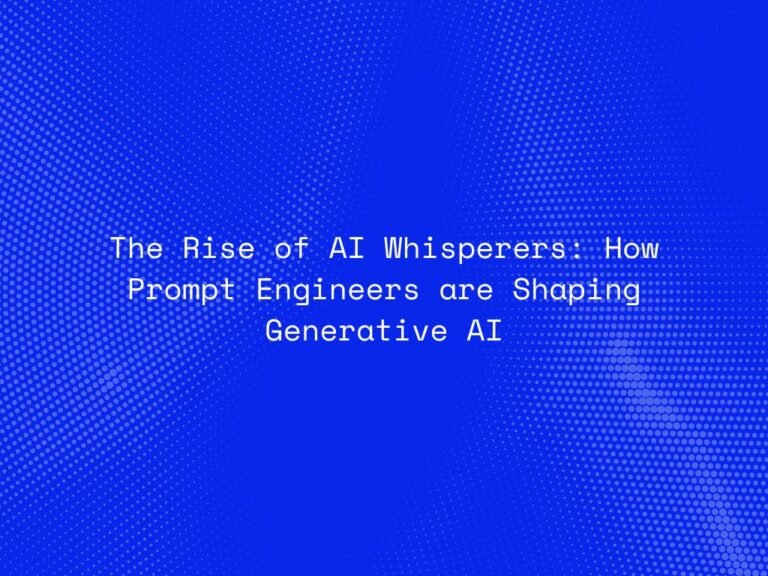In the ever-evolving landscape of healthcare, we stand at a pivotal juncture marked by the advent of generative artificial intelligence (AI). This transformative technology promises to redefine the paradigms of public health, offering innovative solutions to age-old problems while presenting new challenges and ethical considerations.
Understanding Generative AI
Generative AI refers to a class of algorithms capable of creating new, original content, including text, images, and data predictions. Its applications in public health range from disease prediction models to personalized patient care plans, illustrating its versatility and potential for wide-ranging impact.
The Current State of Public Health
The public health sector, while making significant strides in various areas, continues to face challenges such as infectious disease outbreaks, chronic disease management, and health inequities. Generative AI presents a unique opportunity to address these issues more efficiently and effectively.
Generative AI’s Role in Public Health
Generative AI can enhance disease surveillance by analyzing vast datasets to predict outbreaks before they occur, enabling proactive measures. Additionally, it can personalize healthcare by generating tailored treatment plans based on individual patient data, improving outcomes and patient satisfaction.
Bridging Gaps with Generative AI
AI can play a crucial role in bridging the gaps in public health services by enhancing accessibility, accuracy, and efficiency. From streamlining diagnostic processes to optimizing resource allocation, AI’s capabilities are vast and varied.

Enhancing Disease Surveillance
Through real-time data analysis, AI can identify patterns and predict disease outbreaks, allowing for timely interventions. This not only helps in containing diseases but also in allocating resources more effectively.
Personalized Healthcare
Generative AI enables the creation of personalized health interventions, considering an individual’s genetic makeup, lifestyle, and environmental factors. This tailored approach can significantly improve the efficacy of treatments and preventive measures.
Improving Public Health Communication
AI can also revolutionize public health communication, creating targeted campaigns that resonate with diverse audiences. By analyzing public sentiment and behavior, AI can help craft messages that are more likely to influence health-positive behaviors.
Ethical Considerations and Challenges
While the benefits of AI in public health are immense, it’s crucial to navigate the ethical landscape carefully. Issues of data privacy, security, and equity must be addressed to ensure the responsible use of AI.
Privacy and Data Security
Protecting patient data is paramount in healthcare. As AI systems require vast amounts of data, ensuring the security and confidentiality of this information is a significant concern.
Equity and Access
Ensuring equitable access to AI-driven health interventions is essential to avoid widening health disparities. Efforts must be made to ensure that these technologies benefit all sections of society, regardless of socioeconomic status.
The Future of Public Health with AI
The integration of AI in public health is only set to deepen, with emerging technologies offering new avenues for innovation. From advanced predictive models to AI-driven health education tools, the possibilities are endless.
Emerging Technologies and Innovations
As AI technology evolves, we can expect to see more sophisticated applications in public health. These innovations have the potential to further improve disease prevention, diagnosis, and treatment, shaping a healthier future for all.
Building an AI-Ready Healthcare Workforce
To fully harness the potential of AI, it’s imperative to equip healthcare professionals with the necessary skills and knowledge. Investing in AI education and training will ensure that health workers can effectively utilize these tools.
Conclusion
Generative AI stands to revolutionize public health, offering solutions that are more personalized, efficient, and effective. However, navigating the ethical considerations and ensuring equitable access will be key to maximizing its benefits.




